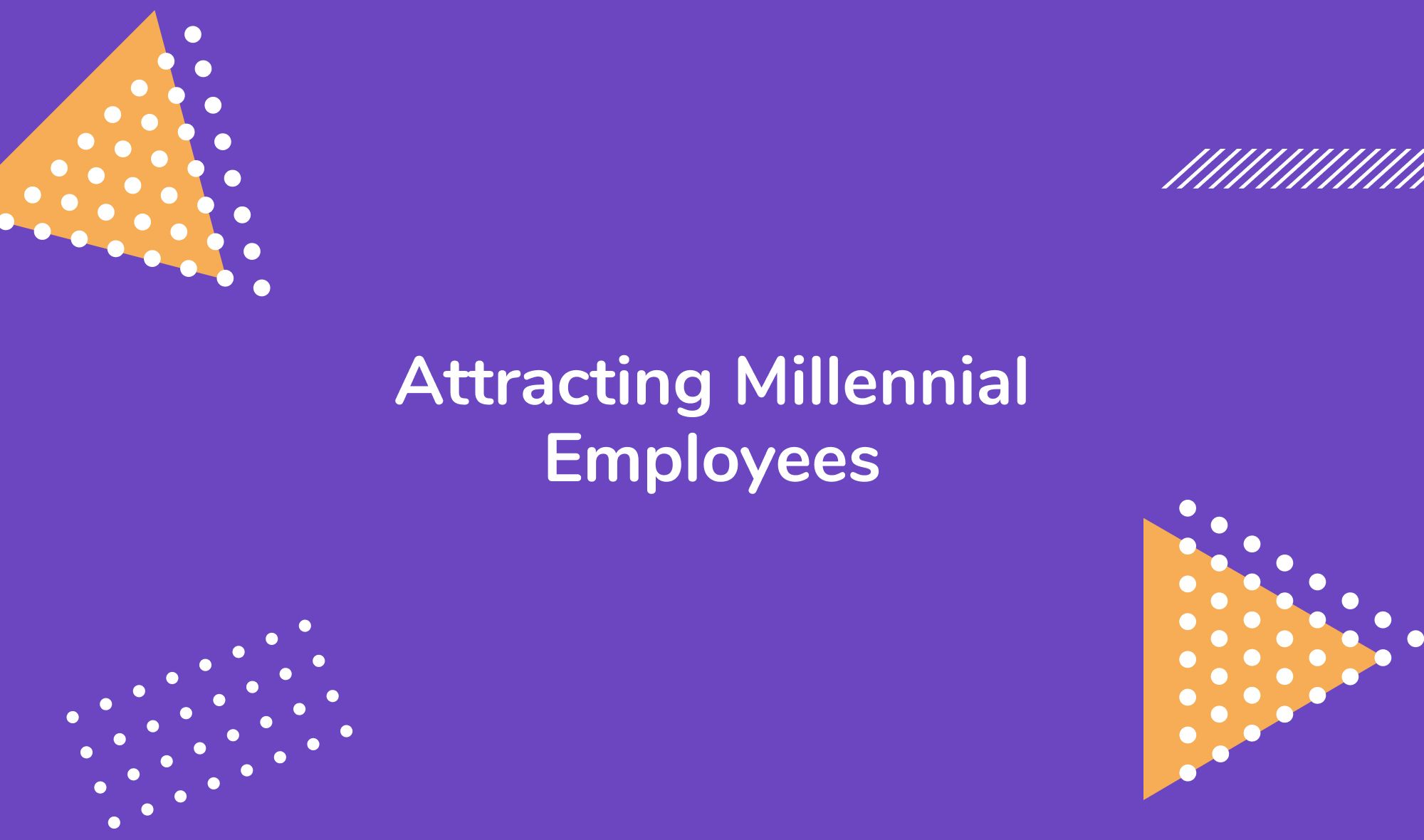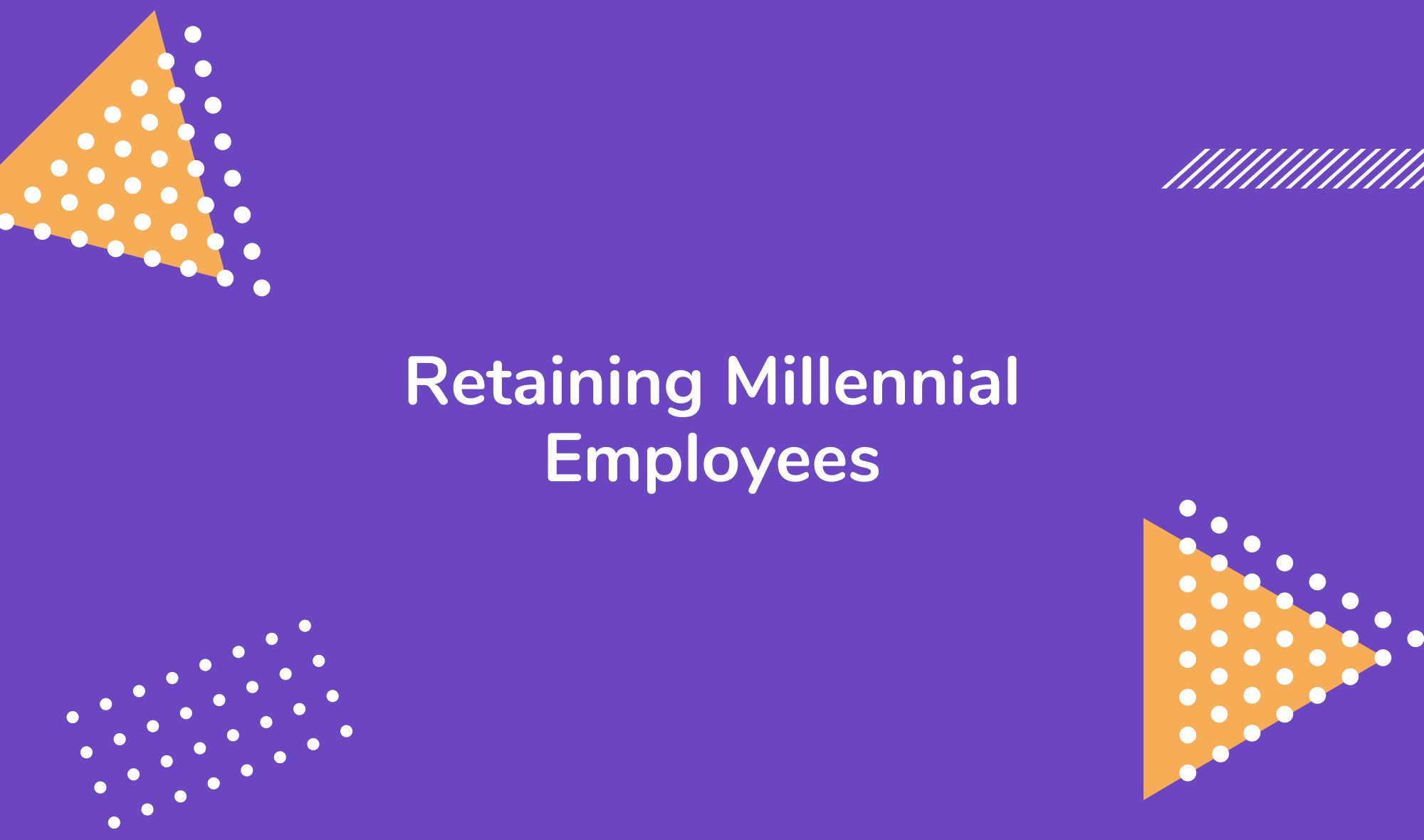How to Attract and Retain Millennial Employees
By Marco Franzoni • June 29, 2023
Key Takeaways
- Millennial employees value work-life balance, meaningful work, and opportunities for advancement.
- An inclusive culture, ethical workplace, and engagement strategies are essential for retaining millennials.
- Coaching, mentorship, and technology play significant roles in meeting millennials' professional expectations.

In the evolving landscape of the 21st-century workplace, one demographic has captured the collective corporate imagination - millennials. The millennial workforce is reshaping business norms with their unique blend of tech-savviness, pursuit of work-life balance, and a strong desire for purpose-driven work. Yet, misconceptions about millennials in the workplace often hinder organizations from fully leveraging this dynamic group.
In our rapidly changing world, the key to building a resilient and forward-thinking company lies in attracting and retaining millennial employees. This demographic brings a refreshing perspective to the table, driving innovation and catalyzing positive impact within organizations. By debunking myths and aligning corporate culture with millennial values, businesses can cultivate an inclusive culture, foster opportunities for advancement, and create an ethical workplace that appeals to this ambitious generation.
In this comprehensive guide, we'll explore effective strategies for recruiting millennial employees, ensuring their job satisfaction, and fostering a healthy work-life balance. We'll delve into the significance of offering meaningful work that aligns with a sense of purpose, promoting social responsibility, and embracing technology in modern workplaces. By engaging with these themes, organizations can unlock a treasure trove of productivity, employee engagement, and, ultimately, business success.
So, whether you're a seasoned executive or a budding entrepreneur, join us on this insightful journey. We'll debunk common misconceptions, share valuable insights, and equip you with the tools to build a thriving multi-generational team.
Stay tuned to our Zella Life blog for insights into millennials' desires and needs, and learn how to create a workplace culture that not only attracts them but also makes them want to stay. We invite you to gain a deeper understanding of millennial employees, tap into their potential, and lead your organization towards a prosperous future.
Join our Newsletter
Transform your career with our personal growth insights. Get one valuable tip right in your inbox every Saturday morning.
Unraveling the Millennial Workforce
As we delve into understanding the millennial workforce, it's essential to grasp who they are and what they bring to the professional landscape. Born between 1981 and 1996, millennials have grown up in an era of rapid technological advancements. This tech-savvy generation is not only comfortable with modern technology but also expects to utilize it in the workplace. As TalentGrow's podcast episode on technology reveals, millennials are leading the charge in embracing technology to streamline processes, foster collaboration, and increase productivity.
The millennial employees are also characterized by their unique expectations from work. They seek more than just a paycheck from their jobs. For them, meaningful work, opportunities for professional development, and a sense of purpose are just as crucial. They crave an inclusive culture that values diversity and inclusion, offers flexibility, and encourages a healthy work-life balance. A work environment that aligns with these values doesn't just attract millennial employees but also aids in their retention.
Despite their potential and contribution to the workplace, millennial employees are often plagued by misconceptions. One such common myth is that they are job hoppers with little loyalty. However, studies suggest that millennials, just like any other generation, are willing to stick with companies that meet their needs and expectations. They crave stability as much as they desire growth, and they're likely to remain loyal to companies that provide opportunities for advancement, promote an ethical workplace, and support their career development.
Another popular misconception is that millennials are less committed to their work. This notion couldn't be further from the truth. Millennials are deeply committed to their roles, especially when they feel engaged and see the positive impact of their work. Employee engagement is not just about productivity for millennials—it's about making a difference and aligning their professional journey with their personal values.
To gain further insights into attracting and retaining millennial professionals, take a look at this informative article by Robert Walters. It sheds light on the changing workforce dynamics and offers effective strategies to engage millennial employees.
Understanding millennials' characteristics and motivations is the first step in successfully integrating them into your workforce. In the following sections, we will delve deeper into how organizations can create a conducive environment that not only attracts but also retains millennial talent.
Attracting Millennial Employees

Attracting millennial employees goes beyond traditional recruitment strategies. This generation has different expectations and aspirations, and it is critical that companies align their values with those of millennials to become an attractive place to work.
A significant attraction for millennials is work-life balance. Unlike previous generations, millennials are not content with spending all their time at work. They value their personal time, health, and mental wellbeing, and they appreciate employers who do the same. Offering flexible work hours, remote working options, and encouraging time-off are not only good practices for employee retention, but they also make your company attractive to prospective millennial employees.
Join our Newsletter
Transform your career with our personal growth insights. Get one valuable tip right in your inbox every Saturday morning.
Another important factor in attracting millennial employees is providing a sense of purpose in their work. Millennials want their work to mean something; they want to feel like they are contributing to a larger mission or cause. This can be communicated during the recruitment process by highlighting the company's mission, its values, and how the employee's role contributes to these. Providing examples of projects that made a significant impact or sharing stories of employees who have grown and made a difference in the company can go a long way in making the job feel meaningful.
Positive impact and corporate social responsibility are also significant draws for millennial employees. Companies that show a genuine commitment to making a positive impact on the world are more likely to attract millennial talent. This includes practices like environmental sustainability, supporting local communities, and promoting diversity and inclusion. The Lifelabs Learning podcast episode on social responsibility provides excellent insights into how companies can incorporate social responsibility into their operations.
To learn more about effective hiring practices to attract millennials, check out this Zellalife blog post which offers comprehensive tips and strategies.
By providing a supportive work environment that aligns with millennials' values and aspirations, companies can attract top millennial talent. In the next section, we will discuss how to retain these employees once they're on board.
Retaining Millennial Employees

Retaining millennial employees requires a deep understanding of their values and expectations. Companies that provide a supportive and growth-oriented environment will see better retention rates among their millennial workforce.
A key factor in retaining millennial employees is the provision of opportunities for advancement. Millennials are ambitious; they crave growth and progression in their careers. They value continuous learning and development, as revealed in this LinkedIn learning data on multi-generational learning. Providing opportunities for professional development and clear career pathways can significantly enhance employee retention among millennials.
The importance of an inclusive culture and an ethical workplace cannot be overstated. Millennials appreciate diversity and inclusion and prefer to work in an environment where everyone feels valued and respected, regardless of their background, race, or gender. As we delve deeper into the role of inclusivity, this informative Zellalife blog post discusses the benefits of diversity and inclusion initiatives in the workplace.
An ethical workplace, characterized by transparency, integrity, and accountability, fosters trust among employees, which is crucial for retention. Check out this Zellalife blog post for effective strategies on managing cultural conflict in the workplace.
Employee engagement plays a significant role in retention. Engaged employees feel a connection to their work, are more productive, and are less likely to leave the company. Measures to increase engagement range from recognizing and rewarding good performance, involving employees in decision making, to promoting a healthy work-life balance. Here's a Zellalife blog that offers insights into boosting business performance through improved employee engagement.
Coaching and mentorship programs can also be powerful tools in retaining millennial employees. Such initiatives provide employees with a sense of direction and support in their professional growth, enhancing their job satisfaction. Listen to Keith Jones' podcast episode on leadership development to gain more insights into the value of mentorship.
For additional reading on employee retention strategies, you can turn to The 4-Hour Workweek and The Hard Thing About Hard Things available on Amazon. These books provide unique perspectives on maintaining a healthy and productive workforce.
By focusing on these areas, companies can create an environment that not only attracts millennial employees but also encourages them to stay and grow within the organization.
Conclusion
As we've explored throughout this post, attracting and retaining millennial employees is paramount to the success of modern organizations. These tech-savvy, purpose-driven individuals bring a unique blend of innovation, social responsibility, and a desire for continuous growth that can significantly boost a company's performance.
We've debunked some common misconceptions about millennial employees and laid out strategies to attract and retain this vibrant workforce. Providing a work-life balance, ensuring opportunities for advancement, fostering an inclusive and ethical workplace, and implementing effective coaching and mentorship programs are just a few ways to engage and retain millennials.
For further insights, we encourage you to explore resources such as the TED Worklife podcast, Spotify's 'The Gifters' show, and Kirkus Reviews for related topics.
If you're interested in exploring the benefits of business coaching, check out how much does a business coach cost on our website.
We also invite you to share your thoughts and experiences on the topic. What has your organization done to attract and retain millennial employees? Have you implemented any strategies we've mentioned, and what were the results? Your insights could be beneficial to others navigating the same journey.
At Zellalife, we provide expert business coaching and personal coaching services to help you navigate the challenges of the modern workplace.
We also offer a wealth of resources on our blog, where you can delve deeper into topics such as effective sales management, unlocking professional success with soft skills training, and much more.
Subscribe to our blog for more enlightening content related to millennials in the workplace and other key trends shaping the future of work. It's time to embrace the future, and we're here to help you every step of the way.
Read more about: Employee Experience, Culture